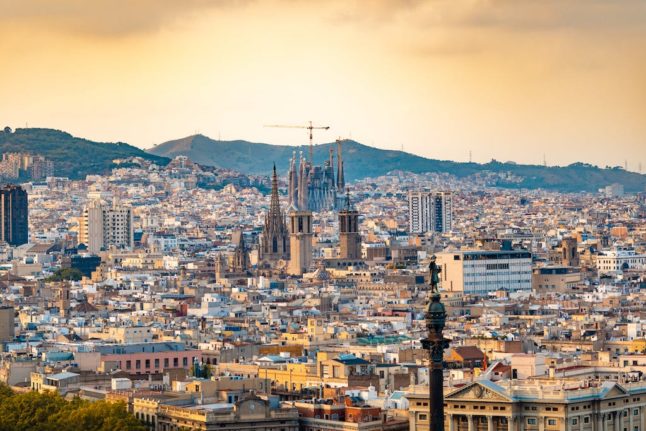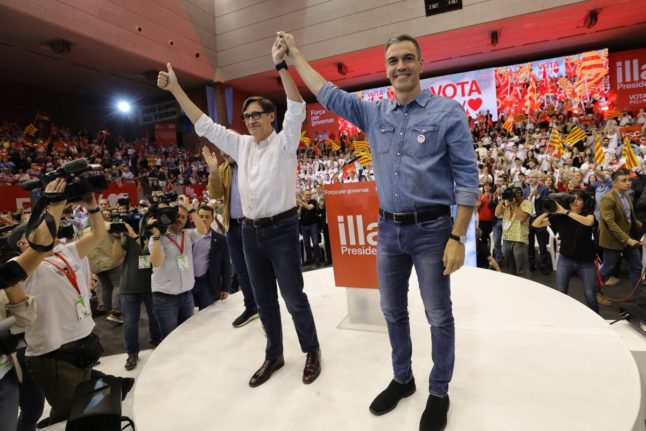The drought situation in Barcelona and the surrounding area is now the worst it’s been since records began in 1915 and reservoir reserves that serve the city are down to the lowest recorded level at 18.89 percent.
It was thought that Barcelona would reach this stage at the beginning of December if no more rain fell this autumn, but after the recent meeting of the Interdepartmental Drought Commission and the Executive Council, it was decided the state of emergency should be brought forward.
In a joint press conference with government spokesperson, Patrícia Plaja, and the director of the Catalan Water Agency ACA, Samuel Reyes, they said: “In the coming days” the country will enter a “pre-emergency” phase, which is a new level added between the exceptional phase and the highest emergency phase.
“Extraordinary measures must be taken without waiting for the reservoirs to reach the limit of 16 percent” Plaja explained.
Currently, Barcelona is in the exceptional phase, but will now move one step closer to the highest level of emergency.
“This preparatory stage could last between a month and a month and a half” before reaching the state of emergency, explained Reyes.
This new level will mean more restrictions, although the director of the ACA was quick to point out that domestic consumption “is guaranteed”.
During this current phase residents have been encouraged to reduce their water usage by 15 percent, fountains have been switched off, cars and private streets can’t be washed, swimming pools can’t be filled and gardens can only be watered with collected rainwater. The consumption limit has also been set at 230 litres of water per person per day.
Although the government has yet to announce the specific restrictions for this new phase, Reyes has appealed to the public to become more aware of the water they’re consuming, not only at home but also in everyday spaces, such as the gym or work.
He also explained that the ideal consumption at home is 90 litres per person per day.
This is the “worst drought” due to its duration (some parts have experienced a lack of rain for 36 months) and its intensity, he continued.
Paja added that “Catalonia has never had to face such a critical drought” before.
The Catalan Water Agency has been carrying out tests over the last few weeks to determine if the system can withstand a drop in water pressure in order to help reduce consumption.
This would mean that if the limits are reduced to 180 liters per person per day for example, reducing the pressure would save 20 percent.
If this goes ahead Aigües de Barcelona admits that “unfortunately the first to notice it will be apartments on the higher floors”, while the lower floors “will not notice it”.



 Please whitelist us to continue reading.
Please whitelist us to continue reading.
Member comments